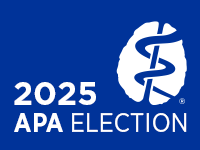Cannabinoids Explored as Potential Anxiety Therapy
 |
Now, Israel Liberzon, M.D, a professor of psychiatry, psychology, and neuroscience at Michigan, and research fellow Christine Rabinak, Ph.D., have found that tetrahydrocannabinol (THC) given during extinction learning in healthy subjects lead to better recall the next day of extinction memory compared with those who received placebo. The effect occurred even though no drug remained in the body.
“We speculate that the THC is doing something in the brain, to change areas that are activating or interacting after learning—but exactly what is still unknown,” Rabinak said in an interview with Psychiatric News.
“Learning is governed and modulated by several systems,” added Liberzon. Each system might modulate specific components of cognition and might lead ultimately to targeted interventions that could be tailored to the individual patient, he said.
For more in Psychiatric News about Liberzon’s and Rabinak’s work, click here.
(Image: Lightpoet/Shutterstock.com)





